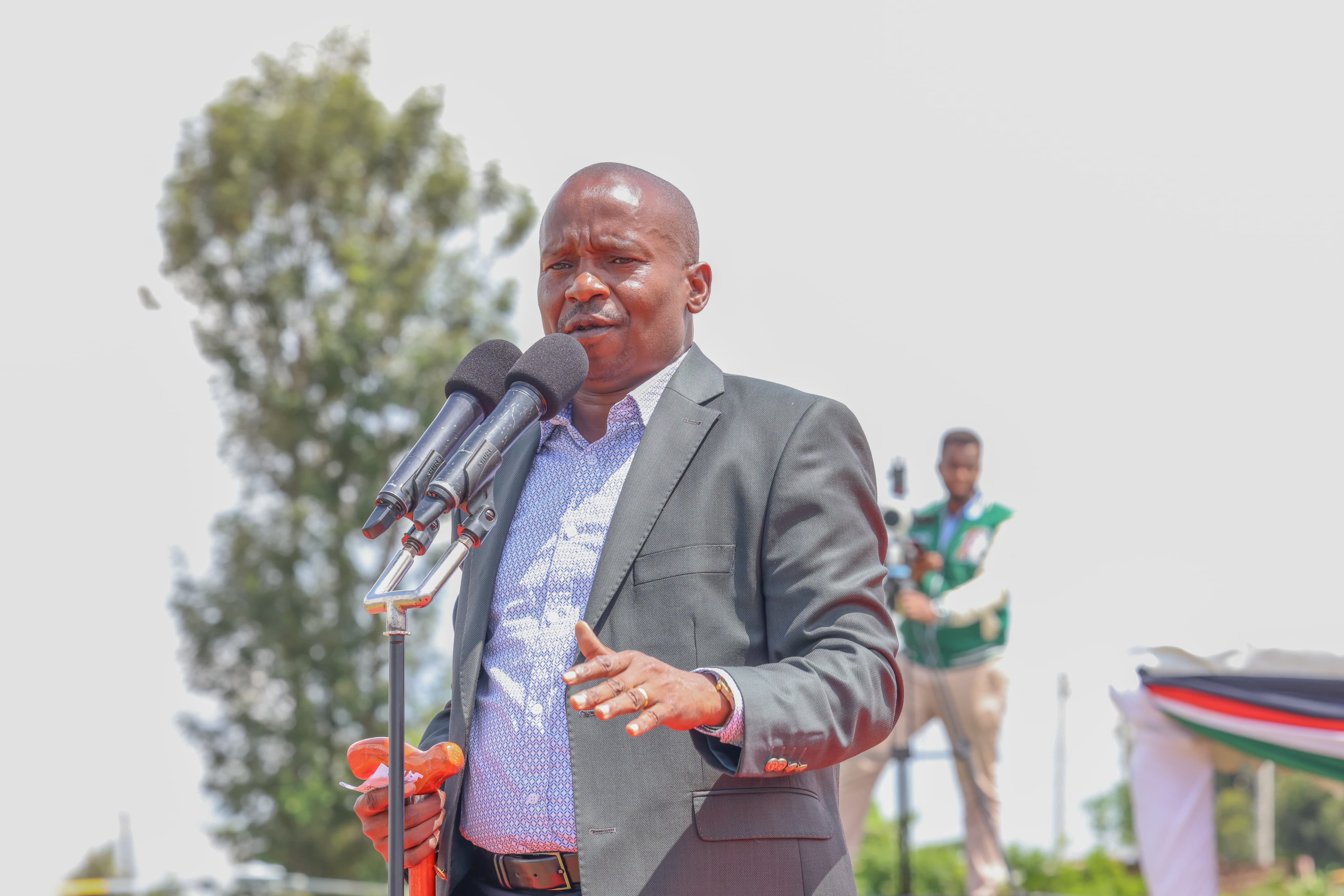

Deputy President Kithure Kindiki has urged farmers from Kisii and Nyamira counties to plant more coffee.
Speaking on Thursday, Kindiki said the sector is now more than it was a few years ago.
He explained that when the Kenya Kwanza administration came into office, farmers earned about Sh60 per kilo but that is no longer the case.
The Deputy President said after government efforts to streamline the sector, farmers are now taking home double the amount and even more.
“I really want to encourage the people of Kisii and Nyamira to plant more coffee because coffee has become more profitable. In 2022, coffee was being bought from the farmer at Sh50 or Sh60. Now farmers are getting from Sh120-Sh150 per kilo,” Kindiki said.
The DP spoke at the empowerment forum he presided over in Nyaribari Chache Constituency, in Kisii County.
He noted that agriculture is what will develop the country and that is the reason the current administration is focused on making it more profitable.
“It is the biggest source of income for many people. We continue to make agriculture more productive and more profitable so many people in Kenya can earn decent incomes.”
Kindiki said that while the government has tried to transform the sector, there is more work that still needs to be done to make it more efficient.
On May 19, Kindiki announced that the government was finalising critical reforms in the coffee sector aimed at ensuring timely delivery of farm inputs.
He noted that the reforms are also geared towards dismantling longstanding cartels ahead of the 2025/2026 coffee season.
Speaking at Kianjang’a Public Grounds in Ndia Constituency, Kirinyaga County, Kindiki told a gathering of more than 12,000 coffee farmers that the government was focused on restoring profitability in the sector and bringing back the “coffee boom” era through legislative and institutional changes.
“To ensure farmers receive their inputs on time, the government is firming up reforms that will guarantee timely access to fertiliser, subsidised pesticides, and certified coffee seedlings,” Kindiki said.
He added that better funding for the Coffee Research Institute would play a key role in the quality and availability of seedlings.
Key among the reforms is a streamlined licensing process in the coffee value chain. The revised protocol eliminates the need for multiple licenses by allowing each individual or entity to hold just one license—as a miller, broker, or marketer.












